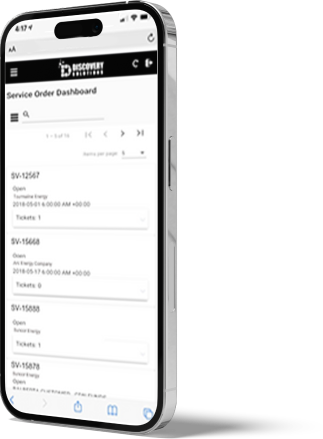ERP vs CRM: What are the Differences?



Acronyms like ERP (Enterprise Resource Planning) and CRM (Customer Relationship Management) frequently emerge as crucial players. While both are indispensable tools for modern enterprises, understanding the distinctions between ERP and CRM is paramount for organizations seeking to optimize their operations and enhance customer relationships. In this comprehensive blog, we'll embark on a journey to unravel the nuanced differences between ERP and CRM, exploring their unique functionalities, benefits, and how the integration of these systems can elevate overall business efficiency.
Defining ERP and CRM: A Tale of Two Business Pillars
1. Enterprise Resource Planning (ERP):
· ERP is an all-encompassing solution designed to streamline and integrate various business processes across an organization.
· It serves as a centralized hub, managing data and processes related to finance, human resources, supply chain, manufacturing, and more.
· ERP's primary goal is to enhance overall efficiency by providing a unified platform for real-time data access, collaboration, and decision-making.
2. Customer Relationship Management (CRM):
· CRM, on the other hand, is a specialized tool focused on managing interactions with customers and prospects.
· It centralizes customer data, tracks sales activities, and supports marketing efforts to enhance customer satisfaction and drive business growth.
· CRM's core objective is to strengthen and optimize the relationships between an organization and its customers throughout the entire customer lifecycle.
Key Differences Between ERP and CRM:
1. Scope of Functionality:
· ERP: Encompasses a wide range of business processes, from financial management to supply chain and manufacturing.
· CRM: Primarily focuses on customer-centric activities such as sales, marketing, and customer service.
2. Data Centralization:
· ERP: Serves as a centralized repository for diverse organizational data, promoting cross-functional collaboration.
· CRM: Centralizes customer-related data, providing a 360-degree view of customer interactions, preferences, and history.
3. Primary Users and Objectives:
· ERP: Targets various departments and stakeholders across the organization, aiming to improve overall operational efficiency.
· CRM: Tailored for sales, marketing, and customer service teams, with a primary goal of enhancing customer relationships and driving revenue.
4. Business Impact:
· ERP: Enhances internal processes, resource management, and overall operational efficiency.
· CRM: Improves customer interactions, sales conversion rates, and marketing ROI, directly impacting revenue generation.
5. Integration and Collaboration:
· ERP: Promotes integration across diverse business functions, fostering collaboration and data sharing.
· CRM: Facilitates seamless collaboration between sales, marketing, and customer service teams, ensuring a unified approach to customer interactions.
Benefits of ERP and CRM Integration: The Power of Synergy
1. Holistic Business Insights:
· Integrating ERP and CRM provides a comprehensive view of both internal operations and customer interactions.
· Holistic insights enable organizations to make informed decisions that align with both operational efficiency and customer-centric objectives.
2. Streamlined Processes:
· By combining ERP's operational prowess with CRM's customer-centric functionalities, organizations can streamline end-to-end business processes.
· From order fulfillment to customer service, integrated systems eliminate silos and enhance overall workflow efficiency.
3. Enhanced Customer Experience:
· Integration ensures that customer-facing teams have access to real-time operational data, enabling them to provide more personalized and informed interactions.
· Improved customer experiences contribute to higher satisfaction and loyalty.
4. Data Accuracy and Consistency:
· Integrated systems reduce the risk of data discrepancies between departments.
· Consistent, accurate data enhances decision-making across the organization, from strategic planning to customer engagement.
5. Efficient Resource Allocation:
· Integration enables better resource allocation, as organizations can align internal processes with customer demands and market trends.
· Efficient resource allocation leads to optimized production, reduced lead times, and improved overall responsiveness.
Best Practices for Implementing ERP and CRM Integration:
1. Thorough Needs Assessment:
· Understand the specific requirements of both internal operations and customer-facing processes.
· Identify key touchpoints where ERP and CRM integration can yield the most significant impact.
2. Selecting the Right Systems:
· Choose ERP and CRM systems that are compatible and offer seamless integration capabilities.
· Consider scalability to ensure the selected systems can grow with the organization's evolving needs.
3. Collaborative Implementation:
· Involve stakeholders from various departments in the integration process.
· Foster collaboration between IT teams, operations, and customer-facing teams to ensure a holistic approach.
4. Data Migration and Quality Assurance:
· Plan and execute data migration carefully, ensuring accuracy and consistency.
· Implement robust data quality assurance measures to prevent discrepancies and ensure data integrity.
Conclusion: Navigating the Synergy
In the grand tapestry of business efficiency, ERP and CRM emerge as distinct but interconnected threads. While ERP orchestrates internal processes, CRM crafts the delicate dance of customer relationships. The true power lies in weaving these threads together, creating a tapestry of synergy that elevates the entire organization.
Understanding the differences between ERP and CRM is crucial, but realizing their potential for collaboration is transformative. The integration of ERP and CRM is not just a technological convergence; it's a strategic decision to align internal operations with customer-centric objectives, fostering a business environment where efficiency and customer satisfaction coexist harmoniously. As organizations embark on this integration journey, they embark on a path toward unparalleled business agility, resilience, and growth in an ever-evolving landscape.

Book a Call





